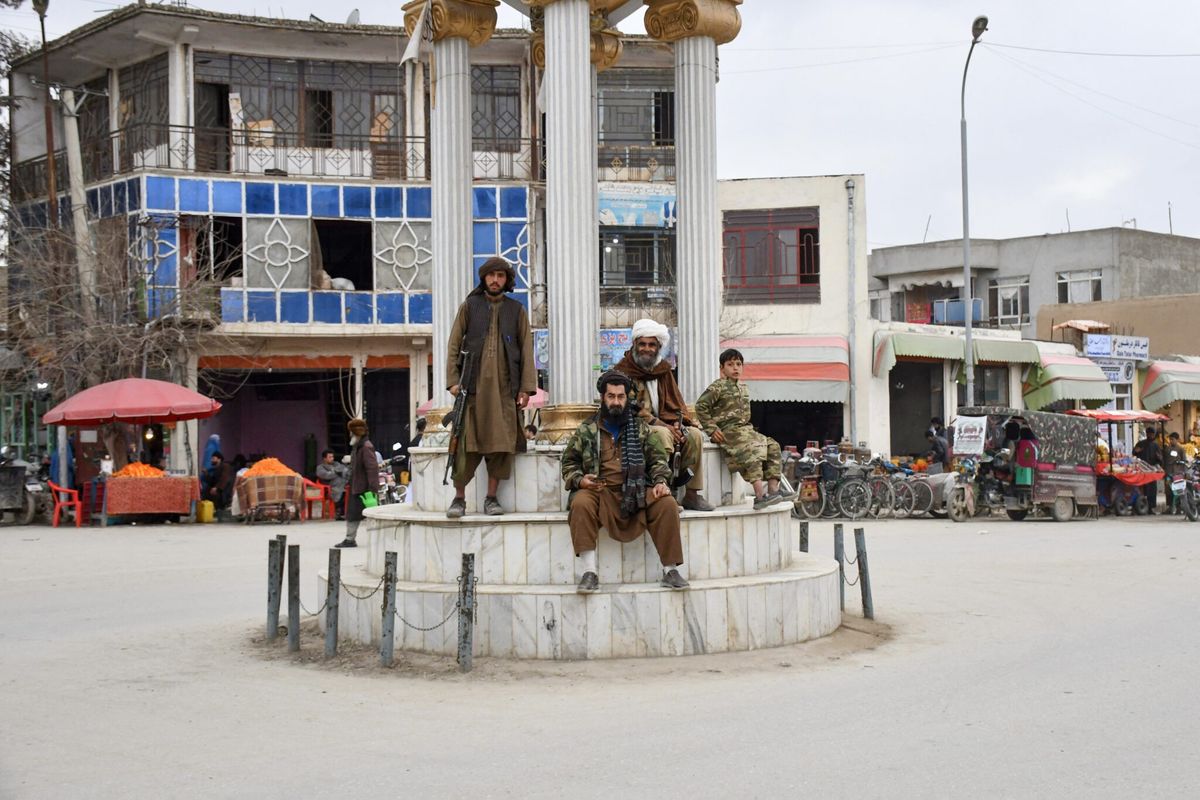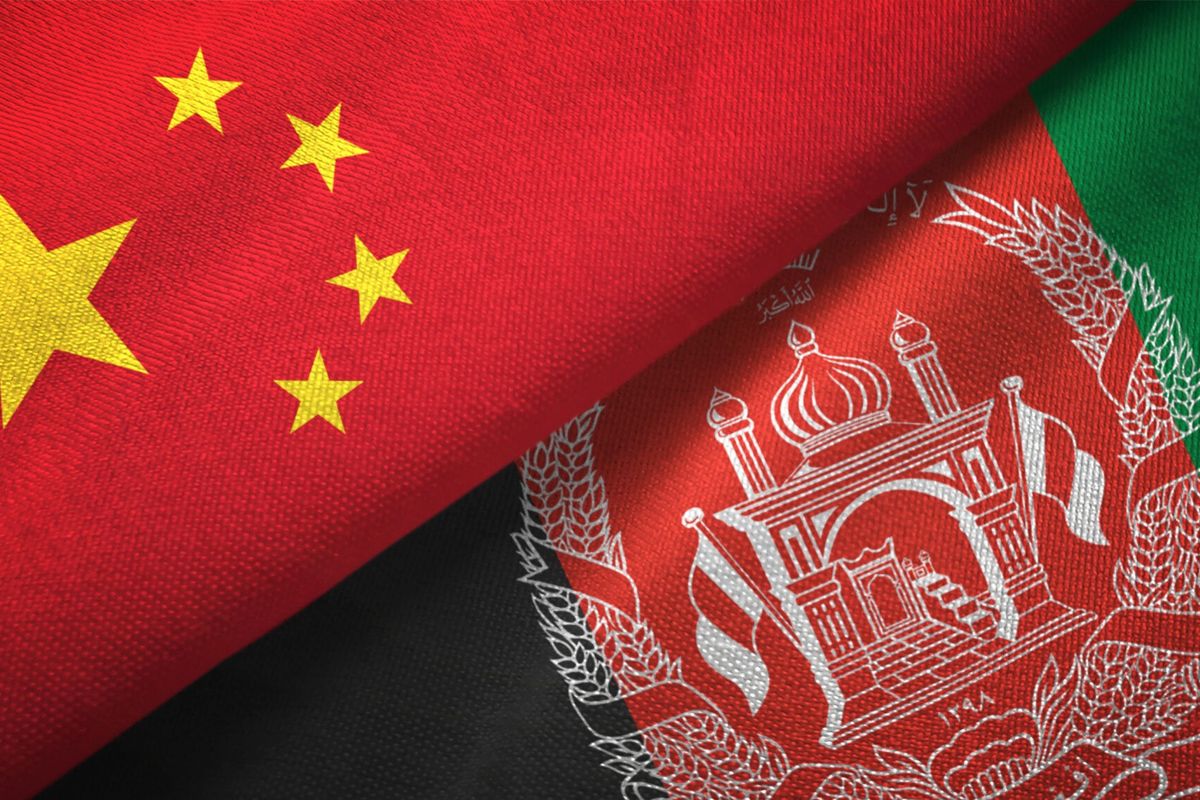In an exclusive interview with The Cipher Brief, Hamdullah Mohib, the Afghan Ambassador to the U.S., emphasized the progress that the Afghan government, led by President Ashraf Ghani, and the Afghan National Security Forces, have made in stabilizing the country and to improve Afghanistan’s economy. Mohib believes the key to defeating terrorist groups in Afghanistan is for members of the international community to “shift their thinking from ‘not losing’ to ‘winning.’” The Ambassador also spoke of the Afghan government’s efforts to root out corruption and of regional initiatives undertaken by the Afghan government and its neighbors.
TCB: According to many reports, the Taliban currently controls more territory in Afghanistan than at any point since 2001. What more can the Afghan government and Afghan Security Forces do to beat back Taliban advances? What role can the U.S. and coalition forces play in aiding this effort?
Hamdullah Mohib: A key fact that often goes unreported is that most of the territory they “control” is sparsely populated or even unpopulated. When they try to overrun population centers, our military has thwarted their plan. Just look at what happened in 2016: four times the Taliban tried to take control of urban centers, and each time they were defeated by Afghan National Security Forces.
We are now at an inflection point in Afghanistan. We have an experienced military, a government committed to winning the peace, and public support on our side. Most importantly, we now have a four-year strategy – developed in cooperation with U.S. and coalition partners – that, if executed, will mean the difference between winning this war or allowing it drag on for years to come.
The advise-and-assist role of U.S. and coalition forces is an essential pillar of support for our armed forces, and the training they provide to our men and women in uniform has raised our levels of professionalism and readiness. In the bigger picture, what we need is for the international community to send an unambiguous signal that it is committed to seeing this fight through to victory. Short term strategies – planning for one or two years out – sends a clear signal to the nearly two dozen UN-designated terrorist groups operating on our soil that if they are patient, one day no international troops will remain in Afghanistan, and it will be theirs for the taking.
Everyone involved in this fight – and make no mistake, this is an international fight, against stateless and state-sponsored terror groups with far-reaching aspirations beyond Afghanistan – must shift their thinking from “not losing” to “winning.” It may sound simplistic, but if the guiding mindset is “we must win” instead of “we must prevent the other side from winning,” subsequent decisions and actions will move us steadily toward that goal.
TCB: What role has the U.S. played in helping to provide security in Afghanistan? Should the U.S. maintain a military presence in the country? If so, are current U.S. troop levels sufficient?
HM: The importance of what the U.S. has done to help Afghanistan strengthen its forces, carry out effective offensive operations, and keep the Taliban and other terrorist groups on the defensive cannot be overstated.
But focusing on the level of U.S. troops is misguided if we’re talking about what’s needed to win. Yes, senior U.S. generals have told Congress that more troops are needed to end what they say is a stalemate. We don’t disagree. We also need helicopters, certain crucial supplies, and close intelligence support. But decisions about troop levels and other specifics must be driven by agreement on a winning strategy. The strategy must determine how many forces we need in this fight, not the other way around.
Terrorism begets terrorism. The Taliban has created the conditions for other groups to gain a foothold; Al Qaeda is reconstituting, and Daesh (ISIS) is inside our borders, carrying out attacks on civilians and military targets alike. If we allow any terrorist group to succeed, it doesn’t matter which terrorist group, it will embolden all of them.
The U.S. went into Afghanistan in 2001 for its own urgent national security reasons – the 9/11 attacks were planned on our soil by al Qaeda, which found shelter under the Taliban. Those national security reasons are no less urgent today. Twenty of the world’s UN-designated terror groups are currently operating in Afghanistan. We are the front line in this international war against evil, the stage on which these groups have gathered. Their goals are much bigger than gaining control of Afghanistan cities and government.
TCB: How are relations between the Trump Administration and President Ashraf Ghani’s government in Kabul? Has the Trump Administration articulated a course of action for U.S.-Afghan relations moving forward?
HM: It’s been less than three months since the inauguration, but so far we are very encouraged by what we have seen and heard from the Trump Administration. There seems to be no hesitation on the part of this White House to fully engage with Afghanistan on a range of key issues, from terrorism to trade, which is a refreshing and welcome development.
President Ghani and President Trump have spoken twice by phone and both times have had wide-ranging, productive conversations. They have discussed the security situation, our military needs, Pakistan’s role in creating instability, and the U.S.-led fight against Daesh (ISIS).
But President Trump is also a keen businessman, so it’s no surprise that he has shown interest in Afghanistan as a potential U.S. economic partner. He realizes we are a country with an advantageous geographic location at the heart of Asia, with the potential to develop into a regional economic force. He recognizes the enormous value of our rich deposits of lithium – the petrol of tomorrow – as well as our estimated $3 trillion worth of oil, gas and mineral reserves. So we are very much looking forward to working with him and his administration not just to eradicate terrorism from our soil but also to execute President Ghani’s vision to make Afghanistan self-reliant and economically stable.
TCB: In a February interview with The Cipher Brief, John Sopko, Special Inspector General for Afghanistan Reconstruction cited Afghanistan as “one of the most corrupt countries in the world,” saying that “In Afghanistan corruption is endemic, it’s institutionalized.” What’s your reaction to that? How can the Afghan government work more effectively to root out corruption and focus on improving Afghanistan’s economy?
HM: Too often, a false connection is made between the Afghan government’s level of commitment to eradicating corruption and the ranking of Afghanistan on global corruption scales.
President Ghani ran on a vehement anti-corruption platform in 2014 and has not wavered on that commitment since he took office. But the significant progress Afghanistan has made in the last two years in rooting out and punishing corruption, as well as on introducing transparency and accountability across government, is frequently overlooked by observers who expected much faster results than were ever going to be possible.
As Sopko said, corruption in Afghanistan is endemic – it has been baked into Afghanistan’s way of life for decades. Reversing that was never going to take just 24 months. It will take years to right that wrong, and we are well into the process. But what isn’t true is that corruption is institutionalized. No one could argue that anymore, given the strict measures that we have been put into place and the severe punishments that have been meted out.
Just a partial list of what we’ve done in the last 24 months to transform Afghanistan’s culture of corruption:
- Created the National Procurement Authority to scrutinize government contracts; so far it has reviewed more than 1,000 contracts worth $3.5 billion and saved over $350 million by weeding out corruption and collusion;
- Implemented transparency and accountability systems across government agencies to eliminate opportunities for corruption;
- Created the country’s first anti-corruption commission and anti-corruption justice center to investigate and prosecute senior Afghan officials, several of whom have been punished under its auspices;
- Created a new high council chaired by President Ghani that oversees the public declaration of assets by senior officials;
- Appointed a new chief justice and attorney general and replaced hundreds of judges and prosecutors; and
- Fired 25 percent of customs officials and prosecuted several money-laundering cases.
As a result of these and other measure, last year the government collected a record $2.1 billion in revenue, surpassing the International Monetary Fund’s target by more than $150 million. That represents a 22 percent increase over 2014. And we’re only getting started.
TCB: How has Afghanistan cooperated with its regional neighbors to bolster trade and economic activity? What about security cooperation? Are new projects underway that will enhance regional cooperation?
HM: President Ghani has always believed that regional cooperation, agreements and outreach are the ways to get Afghanistan’s economy moving in the right direction. His efforts in this area have paid off in first-of-their-kind agreements with countries in Central Asia, China, Iran, India and others. Here are some highlights:
Last year the first train from China arrived in Afghanistan as part of the Five Nations Railway Corridor connecting China with Iran. More than half of the 2,100-kilometer track will pass through Afghanistan. The potential economic impact on trade and transit cannot be underestimated, nor can the positive effect this could have on regional stability and integration.
Afghanistan and Turkmenistan opened the first part of the new Lapis Lazuli railway, which will connect our two countries for the first time and eventually extend east to Tajikistan.
The CASA-1000 Electricity Transmission and Trade Project was launched which will bring electricity surpluses from Tajikistan and the Kyrgyz Republic to Pakistan and Afghanistan.
The TUTAP electricity power line was inaugurated, which will connect Southeast Asia to Central Asia via Afghanistan.
A new trilateral trade agreement gives Afghanistan its first-ever access to deep-water ports in southern Iran.
In October, Afghanistan signed a contract with a Turkish firm to begin work on the second phase of the Kajaki hydropower plant. When the new turbines are installed and development complete, the plant will produce triple the amount of electricity, irrigate 100,000 additional hectares of land and enable the construction of new agricultural canals.
And finally, last year Afghanistan secured commitments for investments of $1.1 billion from the private sector, $800 million of which is in the energy sector, pledged over a 20-year timeframe.













